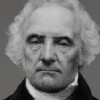ALBANY: You are not worth the dust which the rude wind
Blows in your face.William Shakespeare (1564-1616) English dramatist and poet
King Lear, Act 4, sc. 2, l. 39ff (4.2.39-40) (1606)
(Source)
Speaking to Goderil.
We’ve tried ignorance for a thousand years. It’s time we try education.
Joycelyn Elders (b. 1933) American pediatrician, public health administrator, academic
Penn & Teller: Bullshit!, s. 4, ep. 6 “Abstinence” (2006-06-05)
(Source)
On sex education for kids.
Economists are surgeons who have an excellent scalpel but a jagged lancet — they operate exquisitely on the dead but torture the living.
[Les économistes sont des chirugiens qui on un excellent scalpel et un bistouri ébréché, opérant à merveille sur le mort et martyrisant le vif.]
Nicolas Chamfort (1741-1794) French writer, epigrammist (b. Nicolas-Sébastien Roch)
Products of Perfected Civilization [Produits de la Civilisation Perfectionée], Part 1 “Maxims and Thoughts [Maximes et Pensées],” ch. 7, ¶ 457 (1795) [tr. Dusinberre (1992)]
(Source)
(Source (French)). Alternate translations:
Political Economists are surgeons with excellent scalpels and blunted bistouries; they work on the dead to a marvel and torture the living.
[tr. Mathers (1926)]
An economist is a surgeon with an excellent scalpel and a rough-edged lancet, who operates beautifully on the dead and tortures the living.
[tr. Merwin (1969)]
Economists are surgeons who wield an excellent scalpel and a chipped bistoury, and operate wonderfully on the dead flesh and agonize the living.
[tr. Pearson (1973)]
Economists are surgeons who have an excellent scalpel and chipped scissors, who operate marvelously on the dead and who make martyrs of the living.
[tr. Siniscalchi (1994)]
Books are embalmed minds; they make the great of other days our present teachers. Through books we look, as through “a glass darkly,” upon those vast multitudes whose bodies have passed to dust, and form the earth we tread upon, and through them we, in our turn, shall be made known to coming time.
Christian Nestell Bovee (1820-1904) American epigrammatist, writer, publisher
Intuitions and Summaries of Thought, Vol. 1, “Books” (1862)
(Source)
There is really no way of considering a book independently of one’s special sensations in reading it on a particular occasion. In this as in everything else one must allow a certain relativity. In a sense, one can never read the book that the author originally wrote, and one can never read the same book twice.
Edmund Wilson, Jr. (1895-1972) American writer, literary critic, journalist
The Triple Thinkers, Foreword (1948 ed.)
(Source)
Alas, proud Christians, faint with misery,
So warped of vision in the inward sense
You trust in your backslidings! Don’t you see
That we are worms, whose insignificance
Lives but to form the angelic butterfly
That flits to judgement naked of defence?
Why do you let pretension soar so high,
Being as it were but larvae — grubs that lack
The finished form that shall be by and by?[O superbi Cristian, miseri lassi!
Che, della vista della mente infermi,
Fidanza avete ne’ ritrosi passi;
Non v’ accorgete voi, che noi siam vermi
Nati a formar l’ angelica farfalla,
Che vola alla giustizia senza schermi?
Di che l’ animo vostro in alto galla,
Poi siete quasi entomata in difetto,
Sì come verme, in cui formazion falla?]Dante Alighieri (1265-1321) Italian poet
The Divine Comedy [Divina Commedia], Book 2 “Purgatorio,” Canto 10, l. 121ff (10.121-129) (1314) [tr. Sayers (1955)]
(Source)
Criticizing prideful Christians.
(Source (Italian)). Alternate translations:
O, miserable Pride! of Blindness born!
Vile retrograde Ambition! theme of Scorn!
Can Reptiles in the dust, of dust be proud? --
Boast of their meanness, falsify their end;
From their immortal hopes at once descend.
And let a dowerless Vice their prospects cloud? --
As Reptiles, who their painted plumes display,
(Tho; crawling once in dust,) and wing their way
On Summer-buxom gales, and claim the Sky:
Thus were ye born, and thus you claim your flight
To the pure Precincts of celestial Light,
If on no fpurious Pride your hopes rely.
[tr. Boyd (1802), st. 23-24]
Christians and proud! O poor and wretched ones!
That feeble in the mind’s eye, lean your trust
Upon unstaid perverseness! Know ye not
That we are worms, yet made at last to form
The winged insect, imp’d with angel plumes
That to heaven’s justice unobstructed soars?
Why buoy ye up aloft your unfleg’d souls?
Abortive then and shapeless ye remain,
Like the untimely embryon of a worm!
[tr. Cary (1814)]
O haughty Christians! miserable, alas!
From mental sight to weakness that's allied,
Confiding in perverseness and in pride,
Perceive ye not we are but merely worms,
Born embryo of angelic butterfly,
Which, unrestrained, to justice flies on high,
Where is the object of your souring flight?
Insect, in whom defecta lone prevails,
And worm, in which the true formatiln fails.v [tr. Bannerman (1850)]
O ye proud Christians! wretched, weary ones!
Who, in the vision of the mind infirm
Confidence have in your backsliding steps,
Do ye not comprehend that we are worms,
Born to bring forth the angelic butterfly
That flieth unto judgment without screen?
Why floats aloft your spirit high in air?
Like are ye unto insects undeveloped,
Even as the worm in whom formation fails!
[tr. Longfellow (1867)]
O proud Christians, wretched and weary, who, weak in the sight of the mind, have confidence in your backward paces, do ye not perceive that we are worms, born to form the angelic butterfly which flies without screen to the judgement? In respect of what does your mind float on high, since ye are as it were defective insects, like a worm in which formative power is in default?
[tr. Butler (1885)]
Proud Christians, wretched, weary, and undone!
Who of your mental sight are so bereaved
That ye have faith in backward paths alone;
That we are worms have ye not yet perceived,
Born but to form the Angelic butterfly
That soareth up to judgment unreprieved?
Of what your spirit doth it vaunt so high?
Since ye are unformed insects at the best,
Worms as it were unfinished utterly.
[tr. Minchin (1885)]
O proud Christians, wretched weary ones, who, diseased in vision of the mind, have confidence in backward steps, are ye not aware that we are worms born to form the angelic butterfly which flies unto judgment without defence? Why doth your mind float up aloft, since ye are as it were defective insects, even as a worm in which formation fails?
[tr. Norton (1892)]
O ye proud Christians, wretched and weary, who, sick in mental vision, put trust in backward steps,
perceive ye not that we are worms, born to form the angelic butterfly that flieth to judgment without defence?
Why doth your mind soar on high, since ye are as 'twere imperfect insects, even as the grub in which full form is wanting?
[tr. Okey (1901)]
O vainglorious Christians, weary wretches who are sick in the mind's vision and put your trust in backward steps, do you not perceive that we are worms born to form the angelic butterfly that soars to judgement without defence? Why does your mind float so high, since you are as it were imperfect insects, like the worm that is undeveloped?
[tr. Sinclair (1939)]
O ye proud Christians, weary and sad of brow,
Who, tainted in the vision of the mind,
In backward steps your confidence avow,
Preceive ye not that we are worms, designed
To form the angelic butterfly, that goes
To judgment, leaving all defence behind?
Why doth your mind take such exalted pose,
Since ye, disabled, are as insects, mean
As worm which never transformation knows?
[tr. Binyon (1943)]
O you proud Christians, wretched souls and small,
who by the dim lights of your twisted minds
believe you prosper even as you fall --
can you not see that we awer works, each one
born to become the Angelic butterfly
that flies defenseless to the Judgment Throne?
what have your souls to boast of and be proud?
You are no more than insects, incomplete
as any grub until it burst the shroud.
[tr. Ciardi (1961)]
O proud Christians, wretched and weary, who, sick in mental vision, put trust in backward steps: are you not aware that we are worms, born to form the angelic butterfly that flies until judgment without defenses? Why does your mind soar up aloft, since you are as it wer imperfect insects, even as the worm in which full form is wanting?
[tr. Singleton (1973)]
O haughty Christians, wretched, sluggish souls,
all you whose inner vision is diseased,
putting your trust in things that pull you back,
do you not understand that we are worms,
each born to form the angelic butterfly,
that flies defenseless to the Final Judge?
Why do your souls’ pretensions rise so high,
since you are but defective insects still,
worms as yet imperfectly evolved?
[tr. Musa (1981)]
O proud Christians, wretched and exhausted,
Who, sick in mind, and not seeing aright,
Go confidently in the wrong direction;
Do you not perceive that we are grubs,
Born to turn into the angelic butterfly
Which flies towards justice without defence?
Why does your mind float aloft
Since you are no more than defective insects,
Like the grub which has not reached its full development?
[tr. Sisson (1981)]
O Christians, arrogant, exhausted, wretched,
Whose intellects are sick and cannot see,
Who place your confidence in backward steps,
Do you not know that we are worms and born
To form the angelic butterfly that soars,
Without defenses, to confront His judgment?
Why does your mind presume to flight when you
Are still like the imperfect grub, the worm
Before it has attained its final form?
[tr. Mandelbaum (1982)]
O proud Christians, weary wretches, who, weak in mental vision, put your faith in backward steps,
do you not perceive that we are worms born to form the angelic butterfly that flies to justice without a shield?
Why is it that your spirit floats on high, since you are like defective insects, like worms in whom formation is lacking?
[tr. Durling (2003)]
O proud Christians, weary and wretched, who, infirm in the mind’s vision, put your trust in downward steps: do you not see that we are caterpillars, born to form the angelic butterfly, that flies to judgement without defence? Why does your mind soar to the heights, since you are defective insects, even as the caterpillar is, in which the form is lacking?
[tr. Kline (2002)]
Proud Christians, wretched and — alas! — so tired,
who, feeble in your powers of mental sight,
place so much faith in your own backward tread,
do you not recognize that you are worms
born to become angelic butterflies
that fly to justice with no veil between?
Why is it that your thoughts float up so high?
You, with your faults, are little more than grubs,
chrysalides (no more!) that lack full form.
[tr. Kirkpatrick (2007)]
O vainglorious Christians, miserable wretches!
Sick in the visions engendered in your minds,
you put your trust in backward steps.
Do you not see that we are born as worms,
though able to transform into angelic butterflies
that unimpeded soar to justice?
What makes your mind rear up so high?
You are, as it were, defective creatures,
like the unformed worm, shaped from the mud.
[tr. Hollander/Hollander (2007)]
O haughty Christians, miserable and weary,
Driven by sickness rioting in your mind,
Placing eternal trust in what walks backward,
Unable to see that human beings are worms,
Born to create angelic butterflies
That fly to God's judgment, needing no other protection.
Why do you let your mind soar into Heaven,
Since what you truly are is imperfect insects,
Just as the worm must wait to come into being?
[tr. Raffel (2010)]
Maturity is a bitter disappointment for which no remedy exists, unless laughter can be said to remedy anything.
Kurt Vonnegut, Jr. (1922-2007) American novelist, journalist
Cat’s Cradle, ch. 88 [Bokonon] (1963)
(Source)
Give, give, give — what is the point of having experience, knowledge, or talent if I don’t give it away? Of having stories if I don’t tell them to others? Of having wealth if I don’t share it? I don’t intend to be cremated with any of it! It is in giving that I connect with others, with the world, and with the divine.
Isabel Allende (b. 1942) Chilean-American writer
“In Giving I Connect with Others,” This I Believe series, All Things Considered, NPR (2005-04-04)
(Source)
Written as a tribute to her daughter, Paula, who died in December 1992.
Why then do I spend so many words on the subject of pleasure? Why, because, far from being a charge against old age, that it does not much feel the want of any pleasures, it is its highest praise. But, you will say, it is deprived of the pleasures of the table, the heaped up board, the rapid passing of the wine-cup. Well, then, it is also free from headache, disordered digestion, broken sleep. But if we must grant pleasure something, since we do not find it easy to resist its charms, — for Plato, with happy inspiration, calls pleasure “vice’s bait,” because of course men are caught by it as fish by a hook, — yet, although old age has to abstain from extravagant banquets, it is still capable of enjoying modest festivities.
[Quorsum igitur tam multa de voluptate? Quia non modo vituperatio nulla, sed etiam summa laus senectutis est, quod ea voluptates nullas magno opere desiderat. Caret epulis exstructisque mensis et frequentibus poculis. Caret ergo etiam vinulentia et cruditate et insomniis. Sed si aliquid dandum est voluptati, quoniam eius blanditiis non facile obsistimus, divine enim Plato “escam malorum” appellat voluptatem quod ea videlicet homines capiantur ut pisces, quamquam immoderatis epulis caret senectus, modicis tamen conviviis delectari potest.]Marcus Tullius Cicero (106-43 BC) Roman orator, statesman, philosopher
De Senectute [Cato Maior; On Old Age], ch. 13 / sec. 44 (13.44) (44 BC) [tr. Shuckburgh (1895)]
(Source)
The reference to Plato is to Timaeus, 69D: "κακοῦ δέλεαρ".
(Source (Latin)). Alternate translations:
Therfor thene ye may aske and demaunde why I haue said so many thynges of flesshely delyte and of lecherye, wherfor I answere you that the blame and the shame is not onely ynoughe. But namely it is the grete lawde and praysyng of olde age that it desyreth but lytle flesshely delectacyons. Olde age chargith nevir of dyetes nor of dyvers deynty metys nor of tables richely and dyversly arrayde nor of many dyners drynkys. Olde age wille not be fulle of wyn often for doubte of sekenes. Olde age wille not suffre the akyng of the bely as is the colyk or of the stone or costyfnes whiche comyth of takyng so muche mete and so often that it abideth rawe within the stomake. Olde age desyrith not wakyng in the tyme that nature hath ordeyned to slepe. Albeit an aged man is gretly disposed to wake ayenst his will forsoth the philosopher Platon whiche spake dyversly in a mater that delectacyon at∣tempted by euill disposed men that leyen the baite & the snare to delite aged men in repleccion of lustis & metys not helefull to them & bycause that men be taken & decevued by the baite sett in the hoke or angle as the bird is taken in the snare how be it that olde age wolde have no metys ne his etyngys excessiuely. Algatys they may delite in deynte metys and in smale feedyngys and temperate dyete.
[tr. Worcester/Worcester/Scrope (1481)]
But to what purpose do we speak so much of pleasure? Verily, to the intent that hereby it may be seen and proved, how that it cannot only not be objected to old age for any vituperation and dispraise, but rather for a singular praise and commendation; because old-age doth not esteem nor care for these pleasures. But some other will say: It lacketh sumptuous fare, costly dishes, delicate viands, and drinks of all sorts. Hereto I answer tihat, therefore, it lacketh also drunkenness, crudity, or indigestion, fantastical dreams, and ridiculous apparitions. But if we must any whit yield to to pleasure because we cannot easily resist the blandishments and allurements thereof (for the divine philosopher Plato calleth pleasure the bait of all mischief, because men therewith are caught and snared even as fishes are with the hook), I say, that although old age be not endangered nor given to superfluous and immoderate banqueting, and at unseasonable hours, yet in temperate and moderate feasting it may be solaced and comfortably recreated.
[tr. Newton (1569)]
But to what end speak we so much of pleasure? because that you may see that no blame, but much praise is to be given to age, because it doth not lust after pleasure, which is so dangerous a thing. Age wanteth banquetting, gluttony, and quaffing; it is also without surfeting, drunkennesse, or dreaming; but yet if we may any wayes take some pleasure, because we do not easily resist her flatteries (for divine Plato calleth pleasure the bait of evils, because men are caught ther∣with as fishes with a hook) tho age despiseth immoderate banquets, yet may it be delighted with moderate meetings.
[tr. Austin (1648), ch. 12-13]
Then to our age (when not to pleasures bent)
This seems an honour, not disparagement.
We, not all pleasures like the Stoicks hate;
But love and seek those which are moderate.
(Though Divine Plato thus of pleasures thought,
They us, with hooks and baits, like fishes caught.)
[tr. Denham (1669)]
I have dwelt the longer on this Topick of bodily Pleasures, to shew, it is so far from being a Disparagement to our Age, to be deprived of these Enjoyments, that it is its greatest Praise and Commendation, that it even takes off our Inclinations from the violent Pursuit of them. Though we may not indulge our selves so freely in our Cups, though we do not relish the Pleasures of the most luxurious Provisions, will not our being freed from the fatal Consequences of Indigestion, and a disordered Imagination, make us ample amends? But if we must make some Allowances for Pleasure, and submit to its Blandishments (which Plato calls the Bait of humane Miseries, with which like Fishes we are tempted to the Hook). Though we are deprived of the Pleasure of immoderate Feasting, yet can we still relish the Charms of an agreeable and chearful Entertainment; which arises not from the Delicacy or Variety of Courses, but from the Conversation of the Company.
[tr. Hemming (1716)]
And why all this of Pleasure? Because not only to over-rule the Objection, but to shew that it is the greatest Encomium on Old Age, that he never ardently desires what we call Pleasure. Doth Age want Banquets, great Tables, and frequent Use of Wine? Confequently it is free from Drunkenness, Surfeits, and watchful Nights. But if we are any ways to give ourselves up to Pleasure, because we cannot altogether attend her Invitations, as Plato says, who calls it "a Bait for Evil, and that Men are taken with it as Fishes with a Hook," yet Old Age will abstain from Revelling, and take Delight only in moderate Entertainments.
[tr. J. D. (1744)]
Thus I judged it necessary to be the more full on this Head of Pleasure, and shew the Dangers of it, to the end you might clearly see, it is so far from being a Disadvantage to Old-Age, its Palling our Inclinations to Pleasure, that on the contrary it is rather a great and valuable Blessing. For if it is in a good Measure dead to the Enjoyments others find in Banqueting, sumptuous Feasts and Carousings, it is freed at the same time from all the troublesome Effects of these; as Fumes, Crudities, uneasy Sleep, or the want of it; with divers other such like Disorders. Yet as Nature has so ordered it, that Pleasure should have a very strong Hold of us, and the Inclination to it appears deeply founded in our very Composition, (and 'tis with too much Justice that the divine Plato calls it the Bait of Evil, by which Men are caught as Fish with a Hook) therefore, though Age is not taken, nor can well bear, with those splendid sumptuous Feastings and Revels, yet we are not so insensible to the Pleasures of Life, but that we can indulge ourselves, and take a real Delight in sober and temperate Entertainments with our Friends.
[tr. Logan (1744)]
I have dwelt the longer upon this article, in order to convince you, that the little relish which old age leaves us for enjoyments of the sensual kind, is so far from being a just imputation on this period of life, that on the contrary it very considerably raises its value. If age render us incapable of taking an equal share in the flowing cups, and luxuriant dishes of splendid tables, it secures us too from their unhappy consequences -- from painful indigestions, restless nights, and disordered reason. Accordingly, the divine Plato justly represents pleasure as the bait by which vice ensnares and captivates her deluded votaries. But if this enticement cannot always be resisted, if the palate must sometimes be indulged, I do not scruple to say that an old man, although his years will guard him from excess, is by no means excluded from enjoying, in a moderate degree, the convivial gratifications.
[tr. Melmoth (1773)]
With what view then do I say so much about pleasure? Because not only is it no ground of censure, but even the highest praise of old age, that it desires no pleasures very much. But is old age without feasts, and loaded tables, and frequent cups? Therefore it is without drunkenness, and indigestion and troubled sleep. But if something must be given to pleasure, since we do not easily withstand its blandishments, (for divinely Plato calls pleasure the bait of evils, because evidently men are taken by it as fishes by a hook,) though old age is debarred immoderate feasts, yet, it may be gratified with temperate socialities.
[Cornish Bros. ed. (1847)]
To what end then have I said so many things about pleasure? Because it is so far from being any disparagement, that it is even the highest praise to old age, that it has no great desire for any pleasures. It lacks banquets, and piled up boards, and fast-coming goblets; it is therefore also free from drunkenness and indigestion and sleeplessness. But if something must be conceded to pleasure (since we do not easily withstand its allurements, for Plato beautifully calls pleasure the bait of evils, inasmuch as, by it, in fact, men are caught as fishes with a hook), although old age has nothing to do with extravagant banquets, yet in reasonable entertainments it can experience pleasure.
[tr. Edmonds (1874)]
But to what purpose am I saying so much about pleasure? Because it is not only no reproach to old age, but even its highest merit, that it does not severely feel the loss of bodily pleasures. But, you may say, it must dispense with sumptuous feasts, and loaded tables, and oft-drained cups. True, but it equally dispenses with sottishness, and indigestion, and troubled dreams. But if any license is to be given to pleasure, seeing that we do not easily resist its allurements, -- insomuch that Plato calls pleasure the bait of evil, because, forsooth, men are caught by it as fishes by the hook, -- old age, while it dispenses with excessive feasting, yet can find delight in moderate conviviality.
[tr. Peabody (1884)]
But why so much of pleasure? Why, you see,
Not only is it no disgrace to age,
But ev'n its greatest merit that it longs
No more for pleasure, cares no more for feasts
With loaded tables and o'er-flowing wine.
It misses too the headache, and the night
Of sickness and of sleeplessness that comes.
If something we must grant to pleasure's claim:
(It is not easy to resist its charm:
The godlike Plato thinks it is a bait
To catch the foolish, just as fish are caught:)
Though we cannot indulge in gorgeous feasts,
A modest dinner we can still enjoy.
[tr. Allison (1916)]
Why then, do I dwell at such length on pleasure? Because the fact that old age feels little longing for sensual pleasures not only is no cause for reproach, but rather is ground for the highest praise. Old age lacks the heavy banquet, the loaded table, and the oft-filled cup; therefore it also lacks drunkenness, indigestion, and loss of sleep. But if some concession must be made to pleasure, since her allurements are difficult to resist, and she is, as Plato happily says, “the bait of sin,” -- evidently because men are caught therewith like fish -- then I admit that old age, though it lacks immoderate banquets, may find delight in temperate repasts.
[tr. Falconer (1923)]
Why then do I have so much to say about pleasures of this kind? Because the weakening of temptation to indulge in them, far from supplying a pretext to reproach old age, is a reason for offering it the most cordial complements. Age has no banquets, no tables piled high, no cups filled again and again. So it avoids drunkenness, and indigestion, and sleepless nights! However, the allurements of pleasure are admittedly hard to resist; they are "the bait of sin," as Plato brilliantly calls them, which catch men like fish. If, then, we have to make them some concession, there is no reason why old age, though spared extravagant feasting, should not gratify itself with entertainments of a more modest nature.
[tr. Grant (1960, 1971 ed.)]
Why am I dwelling at such length on pleasure? Because it is not only no condemnation of old age, but rather its highest recommendation, that it feels no overwhelming desire for pleasure. The old do not share in banquets, in tables piled high with food, and in endless toasts; as a consequence, they do not share in drunkenness, in indigestion, and in sleeplessness. But if we must make some concession to pleasure, since we do not easily resist its blandishments (in a moment of inspiration Plato called pleasure “the bait of evil” -- obviously because men are caught by it like fish) -- even though the old do not share in unrestrained high life, still they can derive pleasure from moderate conviviality.
[tr. Copley (1967)]
Why do I go on so much about pleasure? As old men, we should not so much resent our age as praise it in the most glowing terms, because now we cannot feel any more interest in sensual temptations. As old men, we no longer attend formal banquets at tables loaded down with delicious food and wine; but on the other hand we no longer suffer from hangovers and indigestion and insomnia. But even so it may be hard to resist temptation completely. Plato cleverly referred to pleasure as “sin-bait,” because men are caught by it like fishes. There is, then, in our old age, nothing wrong with spending a convivial evening with friends, although we will not indulge ourselves to excess.
[tr. Cobbold (2012)]
So why am I going on and on about pleasure? Because I want to impress upon you how the fact that old age is less subject to the passions for pleasure is not an indictment of this stage of life, but actually one of its greatest advantages. If it lacks allnight parties, or tables heaped hy with rich food and powerful dirnk, it also lacks drunkenness, indigestion, insomnia, and "the morning after." It is not that old age lacks pleasures, it is that they change. And they are healthier. Gone are the overindulgent feasts and in their place we take pleasure in delightful dinner parties.
[tr. Gerberding (2014)]
So why do I tarry on pleasure’s enticement?
The fact that old age has no longing for it
Not only can’t be taken as a demerit,
But on the contrary is the best of credits.
Freedom from decked tables, from banquets
And also from frequent potations
Means freedom from drunkenness,
From insomnia and indigestions.
But we’re bound to make some concessions
To better resist pleasure’s alluring snares
Which Plato calls the bait of transgressions,
By which like fish men are caught unawares.
Although old age sumptuous banquets must shun
In light repasts it finds indeed some fun.
[tr. Bozzi (2015)]
The eazyest thing for our freinds to diskover in us, and the hardest thing for us to diskover in ourselfs, is that we are growing old.
[The easiest thing for our friends to discover in us, and the hardest thing for us to discover in ourselves, is that we are growing old.]
Josh Billings (1818-1885) American humorist, aphorist [pseud. of Henry Wheeler Shaw]
Everybody’s Friend, Or; Josh Billing’s Encyclopedia and Proverbial Philosophy of Wit and Humor, ch. 131 “Affurisms: Plum Pits (1)” (1874)
(Source)
Guard against that vanity which courts a compliment, or is fed by it.
Thomas Chalmers (1780-1847) Scottish minister, theologian, political economist, church leader
Journal (1810-05-10)
(Source)
Language both reflects and shapes society. Culture shapes language and then language shapes culture. Little wonder that the words we use to talk to each other, and about each other, are the most important words in our language: they tell us who I am, they tell us who you are, they tell us who “they” are.
Rosalie Maggio (1944-2021) American writer
Unspinning the Spin: The Women’s Media Center Guide to Fair and Accurate Language, “Writing Guidelines / Introduction” (2014)
(Source)
The first sentence (and much of the groundwork for the overall work) is included in her The Bias-Free Word Finder: A Dictionary of Non-Discriminatory Language, Introduction (1992).
The source link is to the web page that the WMC set up for the book.
There is no logical explanation for despair. You can no more reason yourself into cheerfulness than you can reason yourself an extra six inches in height. You can only be better prepared.
Stephen Fry (b. 1957) British actor, writer, comedian
Speech, Samaritans annual report launch, London (1996-05-17)
Regarding the emotional breakdown which led him once to abandon a play in mid-production, and subsequently again contemplate suicide. The Samaritans are a suicide-prevention group.
Quoted in Gary Younge, "Enter Fry, centre stage, for bravura performance on depression and suicide," The Guardian (1996-05-18).
In fact the state is primarily an organization for killing foreigners, that’s its main purpose. There are, of course, other things they do. They do a certain amount of educating, but, in the course of educating you, try very hard to make the young think it is a grand thing to kill foreigners.
Bertrand Russell (1872-1970) English mathematician and philosopher
Interview by Woodrow Wyatt, BBC TV (1959)
Collected in Bertrand Russell's BBC Interviews (1959) [UK] and Bertrand Russell Speaks His Mind (1960) [US].
I am among those who think that science has great beauty. A scientist in his laboratory is not only a technician: he is also a child placed before natural phenomena which impress him like a fairy tale. We should not allow it to be believed that all scientific progress can be reduced to mechanisms, machines, gearings, even though such machinery also has its beauty.
Marie Curie (1867-1934) Polish-French physicist and chemist [b. Maria Salomea Skłodowska]
“The Future of Culture [L’Avenir de la Culture]” conference, Madrid (1933-05-03/07)
(Source)
One of Curie's last public addresses. As quoted in Eve Curie Labouisse, Madame Curie: A Biography, ch. 24 (1937) [tr. Sheean (1938)].
Alternate translation:
I believe that science has great beauty. A scientist int he laboratory is not a mere technician; he is also a child confronting natural phenomena that impress him as though they were fairy tales. We should not allow it to believed that all scientific progress can be reduced to mechanisms, machines, and gearings, even though such machine also has beauty.
[Source]
If there’s no money in poetry, neither is there poetry in money.
Robert Graves (1895-1985) English poet, novelist, critic
“Mammon,” lecture, London School of Economics and Political Science (1963-12-06)
(Source)
Reprinted in Mammon and the Black Goddess (1965).
The actual American childhood is less Norman Rockwell and Walt Disney than Nathaniel Hawthorne and Edgar Allan Poe.
Success is going from failure to failure without losing your enthusiasm.
Winston Churchill (1874-1965) British statesman and author
(Spurious)
Widely attributed to Churchill, but not found in his writings or contemporary reports of his speech. It's also attributed to Abraham Lincoln, with similar lack of provenance.
Variants:More information about this quotation:
- "Success is the ability to move from one failure to another without loss of enthusiasm."
- "Courage is going from failure to failure without losing enthusiasm."
- "To succeed is to fail repeatedly, but without losing enthusiasm."
Modesty is to merit as shadows are to the figure in a painting: it strengthens it and sets it off.
[La modestie est au mérite ce que les ombres sont aux figures dans un tableau: elle lui donne de la force et du relief.]Jean de La Bruyère (1645-1696) French essayist, moralist
The Characters [Les Caractères], ch. 2 “Of Personal Merit [Du Mérite Personnel],” § 17 (2.17) (1688) [tr. Stewart (1970)]
(Source)
(Source (French)). Alternate translations:
Modesty is to Merit, what Shades are to the Figures in a Picture; it gives it Strength and Heightening.
[Curll ed. (1713)]
Modesty is to Merit as Shades to Figures in a Picture; giving it Strength and Beauty.
[Browne ed. (1752)]
Modesty is to merit what shade is to figures in a picture; it gives it strength and makes it stand out.
[tr. Van Laun (1885)]
Better is a little with contentment than great Treasure; and trouble therewith.
Abigail Adams (1744-1818) American correspondent, First Lady (1797-1801)
Letter to Mary Smith Cranch (1790-02-20)
(Source)
BEARD, n. The hair that is commonly cut off by those who justly execrate the absurd Chinese custom of shaving the head.
Ambrose Bierce (1842-1914?) American writer and journalist
“Beard,” The Cynic’s Word Book (1906)
(Source)
Included in The Devil's Dictionary (1911). Originally published in the "Devil's Dictionary" column in the San Francisco Wasp (1881-04-30).
I always fear less a dull man who is naturally strong
Than someone who is weak and clever.
[ἀεὶ γὰρ ἄνδρα σκαιὸν ἰσχυρὸν φύσει
ἧσσον δέδοικα τἀσθενοῦς τε καὶ σοφοῦ.]Euripides (485?-406? BC) Greek tragic dramatist
Bellerophon [Βελλεροφῶν], frag. 290 (TGF) (c. 430 BC) [tr. @sentantiq (2015)]
(Source)
Barnes frag. 51, Musgrave frag. 11. (Source (Greek)). Alternate translations:
By far less dangerous I esteem the fool
Endued with strength of body, than the man
Who's feeble and yet wise.
[tr. Wodhull (1809)]
I always fear a stupid if bodily powerful man less than one who is both weak and clever.
[tr. Collard, Hargreaves, Cropp (1995)]
Always I fear an unintelligent but naturally strong man less than a weak and clever one.
[tr. Stevens (2012)]
I fear less the powerful but stupid
than the weak and cunning.
[Source]
Whence had you this illustrious name?
From virtue and unblemish’d fame.
By birth the name alone descends;
Your honour on yourself depends:
Think not your coronet can hide
Assuming ignorance and pride.
Learning by study must be won,
‘Twas ne’er entail’d from son to son.John Gay (1685-1732) English poet and playwright
“The Pack-Horse and Carrier (To a young Nobleman),” ll. 41-42
(Source)
Some printings of the poem leave off the prologue, of which this is a part.
But, indeed, the dictum that truth always triumphs over persecution, is one of those pleasant falsehoods which men repeat after one another till they pass into commonplaces, but which all experience refutes. History teems with instances of truth put down by persecution. If not suppressed forever, it may be thrown back for centuries.
One must work, if not out of inclination, at least out of despair. All things considered, work is far less boring than entertaining oneself.
[Il faut travailler, sinon par goût, au moins par désespoir, puisque, tout bien vérifié, travailler est moins ennuyeux que s’amuser.]Charles Baudelaire (1821-1867) French poet, essayist, art critic
Journaux Intimes [Intimate Journals], “Mon cœur mis à nu [My Heart Laid Bare],” § 40 (1864–1867; pub. 1887) [tr. Sieburth (2022)]
(Source)
(Source (French)). Alternate translations:
One must work, if not from inclination at least from despair, since, as I have fully proved, to work is less wearisome than to amuse oneself.
[tr. Isherwood (1930)]
It is necessary to work, if not from inclination, at least from despair. As it turns out, work is less boring than amusing oneself.
[Source, e.g.]
One must work, if not from inclination, at least out of despair -- since it proves, on close examination, that work is less boring than amusing oneself.
[Source, e.g.]
GLOUCESTER: As flies to wanton boys are we to th’ gods;
They kill us for their sport.William Shakespeare (1564-1616) English dramatist and poet
King Lear, Act 4, sc. 1, l. 41ff (4.1.41-42) (1606)
(Source)
Study the historian before you begin to study the facts. This is, after all, not very abstruse. It is what is already done by the intelligent undergraduate who, when recommended to read a work by that great scholar Jones of St. Jude’s, goes round to a friend at St. Jude’s to ask what sort of chap Jones is, and what bees he has in his bonnet. When you read a work of history, always listen out for the buzzing. If you can detect none, either you are tone deaf or your historian is a dull dog. The facts are really not at all like fish on the fishmonger’s slab. They are like fish swimming about in a vast and sometimes inaccessible ocean; and what the historian catches will depend partly on chance, but mainly on what part of the ocean he chooses to fish in and what tackle he chooses to use – these two factors being, of course, determined by the kind of fish he wants to catch. By and large, the historian will get the kind of facts he wants. History means interpretation.
E. H. Carr (1892-1982) British historian, journalist, international relations theorist [Edward Hallett "Ted" Carr]
What Is History?, ch. 1 (1961)
(Source)
Sometimes when a person sees the roguery of poor people and the thievery of people in high positions, he is tempted to regard society as a forest full of robbers, the most dangerous of which are the policemen that are set up to stop the others.
[En voyant quelquefois les friponneries des petits et les brigandages des hommes en place, on est tenté de regarder la société comme un bois rempli de voleurs, dont les plus dangereux sont les archers, préposés pour arrêter les autres.]
Nicolas Chamfort (1741-1794) French writer, epigrammist (b. Nicolas-Sébastien Roch)
Products of Perfected Civilization [Produits de la Civilisation Perfectionée], Part 1 “Maxims and Thoughts [Maximes et Pensées],” ch. 3, ¶ 198 (1795) [tr. Siniscalchi (1994)]
(Source)
(Source (French)). Alternate translations:
Seeing the rogueries of little men and the extortions of the great in office, one is tempted to look upon Society as a wood infested by robbers, the most dangerous being the constables sent to arrest the others.
[tr. Mathers (1926)]
At times, seeing the petty thieveries of the petty, and the robberies of those in office, one is tempted to regard society as a wood full of thieves, of which the most dangerous are the officers set there to arrest the others.
[tr. Merwin (1969)]
Sometimes, when one observes the rogueries perpetuated by petty people and the graft committed by men in office, one is tempted to think of society as a wood infested by thieves, of which the most dangerous are the archers, posted to prevent the others from escaping.
[tr. Pearson (1973)]
There are times when, seeing the nasty tricks people get up to, the gross frauds of high officers, you're tempted to think that you're in a wood infested by thieves, amongst whom the most dangerous are the police, whose purpose is supposed to be that of arresting them.
[tr. Parmée (2003), ¶ 152]
When writers die they become books, which is, after all, not too bad an incarnation.
The root of human virtue seldom bears
Like branches; and the Giver wills it so,
That men may know it is His gift, not theirs.
[Rade volte risurge per li rami
l’umana probitate; e questo vole
quei che la dà, perché da lui si chiami.]Dante Alighieri (1265-1321) Italian poet
The Divine Comedy [Divina Commedia], Book 2 “Purgatorio,” Canto 7, l. 121ff (7.121-123) (1314) [tr. Sayers (1955)]
(Source)
Dante noting that the sons of great kings rarely measure up to their fathers, a reminder from God that those who would be great must seek His blessing, not rely on their heritage.
(Source (Italian)). Alternate translations:
Rarely into the branches of the tree
Doth human worth mount up; and so ordains
He who bestows it, that as his free gift
It may be call’d.
[tr. Cary (1814)]
Rarely shoots merit up into the boughs,
Or human worth; and such the will of Him,
That from the Donor they should seem to come.
[tr. Bannerman (1850)]
Not oftentimes upriseth through the branches
The probity of man; and this He wills
Who gives it, so that we may ask of Him.
[tr. Longfellow (1867)]
Seldom rises human goodness through the branches; and this wills He who gives it in order that from Him it may be claimed.
[tr. Butler (1885)]
But rarely in the branch again is grown
Our human excellence, so willeth He
Who gives it, that the boon be called His own.
[tr. Minchin (1885)]
Rarely doth human goodness rise through the branches, and this He wills who gives it, in order that it may be asked from Him.
[tr. Norton (1892)]
Rarely doth human probity rise through the sons branches:
and this he wills who giveth it,
so that it may be prayed for from him.
[tr. Okey (1901)]
Rarely does human worth rise through the branches, and this He wills who gives it, that it may be sought from Him.
[tr. Sinclair (1939)]
Full seldom human virtue rises through
The branches; and the Giver wills it so,
That they to him for such a gift may sue.
[tr. Binyon (1943)]
Rare is the tree that lifts to every limb
the sap of merit -- He who gives, so wills
that men may learn to beg their best from Him.
[tr. Ciardi (1961)]
Rarely does human worth rise through the branches, and this He wills who gives it, in order that it may be asked from Him.
[tr. Singleton (1973)]
Not often does the sap of virtue rise
to all the branches. This is His own gift,
and we can only beg that He bestow it.
[tr. Musa (1981)]
Rarely does human worth rise through the branches;
That is the will of him whose gift it is,
So that it should be matter for petition.
[tr. Sisson (1981)]
How seldom human worth ascends from branch to branch,
and this is willed by Him who grants that gift,
that one may pray to Him for it!
[tr. Mandelbaum (1982)]
Seldom does human probity rise up through the branches, and this is willed by him who gives it, that it may be attributed to him.
[tr. Durling (2003)]
Human worth rarely increases through its branches: and this He wills who creates it, so that it may be asked for of him.
[tr. Kline (2002)]
It seldom happens that man’s probity
will rise through every branch. He wills it thus,
so, given from beyond, it’s known as His.
[tr. Kirkpatrick (2007)]
Rarely does human worth rise through the branches.
And this He wills who gives it,
so that it shall be sought from Him.
[tr. Hollander/Hollander (2007)]
Goodness rarely flows to the spreading branches
Of a family tree, for God who gives it decrees
That since the gift is His, humans must ask it.
[tr. Raffel (2010)]
The rule is, we are to Give as we would Receive, cheerfully, quickly, and without Hesitation; for there’s no Grace in a Benefit that sticks to the fingers.
Seneca the Younger (c. 4 BC-AD 65) Roman statesman, philosopher, playwright [Lucius Annaeus Seneca]
Morals, Part 1 “Of Benefits,” ch. 7 “The Manner of Obliging” [tr. L’Estrange (1693)]
(Source)
The awareness of the ambiguity of one’s highest achievements (as well as one’s deepest failures) is a definite symptom of maturity.
Paul Tillich (1886-1965) American theologian and philosopher
Quoted in Time (1963-05-17)
(Source)
Speech given at the 40th Anniversary Dinner for Time, reported in the following week's magazine.
It is the certainty that they possess the truth that makes men cruel.
[C’est la certitude qu’ils tiennent la vérité qui rend les hommes cruels.]
Anatole France (1844-1924) French poet, journalist, novelist, Nobel Laureate [pseud. of Jaques-Anatole-François Thibault]
(Misquotation)
Widely attributed (in French and English) to Anatole France, but not found in his works, including the one location it is sometimes cited from, Les Dieux Ont Soif [The Gods Are Thirsty, The Gods Are Athirst, The Gods Will Have Blood] (1912), in either English translation or, more importantly, in the original French.
While thematically keeping in the novel's depiction of the French Revolution and the Terror, the closest match to the quote I can find is this portion of ch. 22, talking about the expediting of the trials of those charged with counter-revolutionary crimes, eliminating the need to prove a misdeed by simply inquiring as to the accused's beliefs.
Justice thus abbreviated satisfied them; the pace was quickened, and no obstacles were left to fret them. They limited themselves to an inquiry into the opinions of the accused, not conceiving it possible that anyone could think differently from themselves except in pure perversity. Believing themselves the exclusive possessors of truth, wisdom, the quintessence of good, they attributed to their opponents noting but error and evil. They felt themselves all-powerful; they envisaged God.
[tr. Allinson (1913), Jackson (1921)]
Justice, thus curtailed, satisfied them; the pace was quickened and no obstacles were left to confuse them. They confined themselves to inquiring into the opinions of the accused, not conceiving it possible that anyone, except from pure perversity, could think differently from themselves. Believing themselves to possess a monopoly of truth, wisdom and goodness, they attributed to their opponents all error, stupidity and evil. They felt themselves omnipotent: their eyes had seen God.
[tr. Davies (1979)]
La justice abrégée les contentait. Rien, dans sa marche accélérée, ne les troublait plus. Ils s’enquéraient seulement des opinions des accusés, ne concevant pas qu’on pût sans méchanceté penser autrement qu’eux. Comme ils croyaient posséder la vérité, la sagesse, le souverain bien, ils attribuaient à leurs adversaires l’erreur et le mal. Ils se sentaient forts : ils voyaient Dieu.
[Original]
We are of each an unsocial, taciturn disposition, unwilling to speak, unless we expect to say something that will amaze the whole room, and be handed down to posterity with all of the eclat of a proverb.
No form of liberty is worth a darn which doesn’t give us the right to do wrong now and then.
H. L. Mencken (1880-1956) American writer and journalist [Henry Lewis Mencken]
A Little Book in C Major, ch. 3, § 16 (1916)
(Source)
A neurotic is someone who’s afraid to see himself as he’s afraid others see him.
Mignon McLaughlin (1913-1983) American journalist and author
The Second Neurotic’s Notebook, ch. 10 (1966)
(Source)
Thy Godlike crime was to be kind,
To render with thy precepts less
The sum of human wretchedness,
And strengthen Man with his own mind.
Remember, today is the tomorrow you worried about yesterday.
Dale Carnegie (1888-1955) American writer, lecturer
How to Stop Worrying and Start Living, Part 10 “How I Conquered Worry” (1948)
(Source)
Final note by Carnegie on the story "Six Major troubles Hit Me All At Once" by C. I. Blackwood of Oklahoma City.
The phrase was a "rule" Carnegie taught in his adult courses, and he collected many reports from students about how the various rules taught in the course actually worked in their lives. Thus the "remember" above and how the phrase is also mentioned, quoted in the past tense, in the story "I Now Look for the Green Light," by Joseph M. Cotter of Chicago: "I was told over and over that 'today was the tomorrow I had worried about yesterday.'"
We cannot all do everything.
[Non omnia possumus omnes.]Virgil (70-19 BC) Roman poet [b. Publius Vergilius Maro; also Vergil]
Eclogues [Eclogae, Bucolics, Pastorals], No. 8 “Pharmaceutria,” l. 63 (8.63) (42-38 BC) [tr. Mackail (1899)]
(Source)
Invoking the Pierian Muses to finish the tale, after the singer has given the first half.
(Source (Latin)). Alternate translations:
All cannot all things do.
[tr. Ogilby (1649)]
We cannot all do all things.
[tr. Davidson (1854), Wilkins (1873), Greenough (1895), Day Lewis (1963), @sentantiq (2018)]
Scarce may all do everything.
[tr. Calverley (c. 1871)]
We are not equal all
To every theme.
[tr. Palmer (1883)]
All things are not possible to all.
[tr. Bryce (1897)]
We cannot all do everything.
[tr. Fairclough (Loeb) (1916)]
We are not all sufficient for all things.
[tr. Mackail/Cardew (1908)]
No single singer touches all the chords.
[tr. Williams (1915)]
We cannot all succeed in every task.
[tr. Rieu (1949)]
For none of us all is skilful in all things.
[tr. Johnson (1960)]
We are not all capable of all things.
[tr. Kline (2001)]
I will apologise for many things that I have done, but I will not apologise for the things that should never be apologised for. It is a little theory of mine that has much exercised my mind lately, that most of the problems of this silly and delightful world derive from our apologising for those things which we ought not to apologise for, and failing to apologise for those things for which apology is necessary.
Stephen Fry (b. 1957) British actor, writer, comedian
Moab Is My Washpot, “Falling In,” ch. 3 (1997)
(Source)
One of the things that militates against happiness is worry, and that’s one respect in which I’ve become much happier as I’ve grown older. I worry much less and I found a very useful plan in regard to worry, which is to think, “Now what is the very worst thing that could happen?” And then think, “Well, after all it wouldn’t be so very bad a hundred years hence; it probably won`t matter.” After you’ve really made yourself think that, you won`t worry so much. Worry comes from not facing unpleasant possibilities.
Bertrand Russell (1872-1970) English mathematician and philosopher
Interview by Woodrow Wyatt, BBC TV (1959)
Collected in Bertrand Russell's BBC Interviews (1959) [UK] and Bertrand Russell Speaks His Mind (1960) [US]. Reprinted (abridged) in The Humanist (1982-11/12), and in Russell Society News, #37 (1983-02).
We must not forget that when radium was discovered no one knew that it would prove useful in hospitals. The work was one of pure science. And this is a proof that scientific work must not be considered from the point of view of the direct usefulness of it. It must be done for itself, for the beauty of science, and then there is always the chance that a scientific discovery may become like the radium a benefit for humanity.
Marie Curie (1867-1934) Polish-French physicist and chemist [b. Maria Salomea Skłodowska]
“The Discovery of Radium,” lecture, Vassar College (1921-05-14)
(Source)
Whoever said money can’t solve your problems must not have had enough money to solve them.
Ariana Grande (b. 1993) American singer, songwriter, actress
“7 Rings”, Thank U, Next (2018)
(Source)
A wise woman once said to me that there are only two lasting bequests we can hope to give our children. One of these she said is roots, the other, wings.
Hodding Carter II (1907-1972) American journalist and author [William Hodding Carter II]
Where Main Street Meets the River, “It’s How We Like It” (1953)
(Source)
Almost always quoted without the notes about the "wise woman," e.g.,
There are only two lasting bequests we can hope to give our children: one of these is roots, the other, wings.
Can’t you understand that if you take a law like evolution and make it a crime to teach it in public schools, tomorrow you could make it a crime to teach it in private schools, and tomorrow you may make it a crime to read about it? And soon you may ban books and newspapers. And then you may turn Catholic against Protestant, and Protestant against Protestant, and try to foist your own religion upon the mind of man. If you can do one you can do the other, because fanaticism and ignorance is forever busy and needs feeding.
Nedrick Young (1914-1968) American screenwriter and actor [pseud. Nathan E. Douglas]
Inherit the Wind, film (1960) [with Harold Jacob Smith]
(Source)
The original 1951 play was written by Jerome Lawrence and Robert E. Lee, but does not include this line, delivered in the film by Spencer Tracy. Young and Smith share the screenwriting credits.
BACCHUS, n. A convenient deity invented by the ancients as an excuse for getting drunk.
Ambrose Bierce (1842-1914?) American writer and journalist
“Bacchus,” The Cynic’s Word Book (1906)
(Source)
Included in The Devil's Dictionary (1911). Originally published in the "Devil's Dictionary" column in the San Francisco Wasp (1881-04-23).
Call me a scoundrel, only call me rich!
All ask how great my riches are, but none
Whether my soul is good.[ἔα με κερδαίνοντα κεκλῆσθαι κακόν]
Euripides (485?-406? BC) Greek tragic dramatist
Bellerophon [Βελλεροφῶν], frag. 181 (Nauck, TGF) (c. 430 BC) [tr. Gummere (1925)]
(Source)
Barnes frag. 65. Found (in Latin) in Seneca, Epistulae morales ad Lucilium, 115.14:
Sine me vocari pessimum, ut dives vocer.
An dives, omnes quaerimus, nemo, an bonus.
(Source (Greek)). Alternate translations:
If any gain ensue, I am content.
To be term'd wicked. We all ask this question,
Whether a man be rich, not whether virtuous.
[tr. Wodhull (1809)]
Let me be called a scoundrel, but a rich one.
We all ask if he’s rich, not if he’s good.
[Source]
Learning without thought ends in a blur. Thought without learning will soon totter.
[學而不思則罔、思而不學則殆。]Confucius (c. 551- c. 479 BC) Chinese philosopher, sage, politician [孔夫子 (Kǒng Fūzǐ, K'ung Fu-tzu, K'ung Fu Tse), 孔子 (Kǒngzǐ, Chungni), 孔丘 (Kǒng Qiū, K'ung Ch'iu)]
The Analects [論語, 论语, Lúnyǔ], Book 2, verse 15 (2.15) (6th C. BC – AD 3rd C.) [tr. Ware (1950)]
(Source)
Many (but not all) translators suggest that learning/study here is not general academics, but examining and maintaining the ancient traditions.
(Source (Chinese)). Alternate translations:
Learning without thought is labour lost; thought without learning is perilous.
[tr. Legge (1861)]
Learning with [sic] thought is a snare; thought without learning is a danger.
[tr. Jennings (1895)]
Study without thinking is labour lost. Thinking without study is perilous.
[tr. Ku Hung-Ming (1898)]
Learning without thought is useless. Thought without learning is dangerous.
[tr. Soothill (1910)]
Education without meditation is useless. Meditation without education is risky.
[tr. Soothill (1910), alternate]
Research without thought is a mere net and entanglement: thought without gathering data, a peril.
[tr. Pound (1933)]
He who learns but does not think, is lost. He who thinks but does not learn is in great danger.
[tr. Waley (1938)]
If one learns from others but does not think, one will be bewildered. If, on the other hand, one thinks but does not learn from others, one will be in peril.
[tr. Lau (1979)]
If one studies but does not think, one is caught in a trap. If one thinks but does not study, one is in peril.
[tr. Dawson (1993)]
To study without thinking is futile. To think without studying is dangerous.
[tr. Leys (1997)]
Learning without thinking is fruitless; thinking without learning is perplexing.
[tr. Huang (1997); additional translations.]
Studying but not thinking, it is confused; Thinking but not studying, it is dangerous.
[tr. Cai/Yu (1998)]
Learning without due reflection leads to perplexity; reflection without learning leads to perilous circumstances.
[tr. Ames/Rosemont (1998)]
If he studies and does not reflect, he will be rigid. If he reflects but does not study, he will be shaky.
[tr. Brooks/Brooks (1998)]
To learn and never think -- that's delusion. But to think and never learn -- that is perilous indeed!
[tr. Hinton (1998)]
If you learn without thinking about what you have learned, you will be lost. If you think without learning, however, you will fall into danger.
[tr. Slingerland (2003)]
Learning without thought is pointless. Thought without learning is dangerous.
[tr. Watson (2007)]
If you learn but do not think, you will be dazed. If you think but do not learn, you will be in danger.
[tr. Chin (2014)]
Learning from books without critical thinking results in confusion. Thinking vacuously without learning from books is perilous.
[tr. Li (2020)]
When the whole world is running towards a cliff, he who is running in the opposite direction appears to have lost his mind.
Language doesn’t belong to grammarians, linguists, wordsmiths, writers, or editors. It belongs to the people who use it. It goes where people want it to go, and, like a balky mule, you can’t make it go where it doesn’t want to go.
Rosalie Maggio (1944-2021) American writer
Talking About People: A Guide to Fair and Accurate Language, “Writing Guidelines” (1997)
(Source)
In this country it is useful from time to time to kill one admiral in order to encourage the others.
[Dans ce pays-ci il est bon de tuer de tems en tems un Amiral pour encourager les autres.]
Voltaire (1694-1778) French writer [pseud. of Francois-Marie Arouet]
Candide, ch. 23 (1759) [tr. Adams (1966)]
(Source)
As Candide witnesses the (real-life) 1757 execution of English Admiral John Byng, who withdrew his undermanned ships from a naval battle during the French invasion of Minorca at the beginning of the Seven Years War. Byng was scapegoated for poor condition of the Mediterranean fleet, and court martialed for "failing to do his utmost" in the battle, which carried an automatic death penalty. In real life, Voltaire had been one of the people who attempted to intervene on Byng's behalf. In the book, Candide is so appalled by the injustice, he refuses to touch ground on English soil.
The last few words ("pour encourager les autres") are frequently quoted on their own referring to any harsh punishment used as an example to incent those who follow.
(Source (French)). Alternate translations:
In this country it is found requisite, now and then, to put an admiral to death, in order to encourage the others to fight.
[tr. Smollett (1759)]
In this country it is found good, from time to time, to kill one Admiral to encourage the others.
[Source (1859)]
In this country it is found requisite, now and then, to put one admiral to death, in order to spirit up the others.
[tr. Smollett/Thornton (1920)]
In this country it is good to kill an Admiral from time to time to encourage the others.
[Modern Library ed. (1920)]
In this country it is necessary, now and then, to put one admiral to death in order to inspire the others to fight.
[tr. Morley (1922)]
In this country it is a good thing to kill an admiral from time to time to encourage the others.
[Random House ed. (1928)]
In this country it’s good to kill an admiral now and then, to encourage the others.
[tr. Bair (1959)]
In this country it is found requisite,now and then to kill an admiral, in order to encourage the others.
[tr. Cameron (1997)]
In this country they think it's good to kill an Admiral from time to time, to encourage the others.
[tr. Gordon (1999)]
On the necessary points, unity. On the questionable points, liberty. In everything, love.
Augustine of Hippo (354-430) Christian church father, philosopher, saint [b. Aurelius Augustinus]
(Misattributed)
A commentary on theological / doctrinal dispute, frequently attributed to Augustine, but not found in his works.
The first known occurrence of such an expression is in Marco Antonio de Dominis, De Republica Ecclesiastica, Book 4, ch. 8, penultimate sentence (1617):
Omnesque mutuam amplecteremur unitatem in necessariis, in non necessariis libertatem, in omnibus caritatem.
[And let us all embrace one another, unity in what is necessary, liberty in what is not necessary, charity in all things.]
The phrase was also adapted by Richard Baxter (1615-1691) as his motto. See also Rupertus Meldenius (1626).
More discussion about this quotation here: Liber locorum communium: In necessariis unitas, in non necessariis libertas, in utrisque caritas (Marco Antonio De Dominis, 1617), cf. In necessariis unitas, in dubiis libertas, in omnibus caritas (and other variants). English: "In essentials unity ..."
The least vile of all merchants is he who says: “Let us be virtuous, since, thus, we shall gain much more money than the fools who are dishonest.” For the merchant, even honesty is a financial speculation.
[Le moins infâme de tous les commerçants, c’est celui qui dit: Soyons vertueux pour gagner beaucoup plus d’argent que les sots qui sont vicieux. — Pour le commerçant, l’honnêteté elle-même est une spéculation de lucre.]
Charles Baudelaire (1821-1867) French poet, essayist, art critic
Journaux Intimes [Intimate Journals], “Mon cœur mis à nu [My Heart Laid Bare],” § 47 (1864–1867; pub. 1887) [tr. Isherwood (1930)]
(Source)
(Source (French)). Alternate translation:
The least despicable of merchants is the one who says: Let us be virtuous so that we can make far more money than those vice-ridden fools. -- For the merchant, even honesty offers a money-making opportunity.
[tr. Sieburth (2022)]
Change is certain. Progress is not.
E. H. Carr (1892-1982) British historian, journalist, international relations theorist [Edward Hallett "Ted" Carr]
(Attributed)
This is widely cited to his collection, From Napoleon to Stalin and Other Essays (1980), but I cannot find it there.
Love, such as it exists in high society, is merely an exchange of whims and the contact of skins.
[L’amour, tel qu’il existe dans la société, n’est que l’échange de deux fantaisies et le contact de deux épidermes.]
Nicolas Chamfort (1741-1794) French writer, epigrammist (b. Nicolas-Sébastien Roch)
Products of Perfected Civilization [Produits de la Civilisation Perfectionée], Part 1 “Maxims and Thoughts [Maximes et Pensées],” ch. 6, ¶ 359 (1795) [tr. Dusinberre (1992)]
(Source)
(Source (French)). Alternate translations:
Love as it exists in society is nothing more than the exchange of two fancies and the contact of two epidermes.
[tr. Hutchinson (1902)]
Love, as it s practiced in Society, is nothing but the exchange of two caprices and the contact of two skins.
[tr. Mathers (1926)]
Love as it exists in society is merely the mingling of two fantasies and the contact of two skins.
[tr. Merwin (1969)]
Love as it exists in society is only the exchange of two fantasies and the contact of two epidermises.
[tr. Sinicalchi]













































